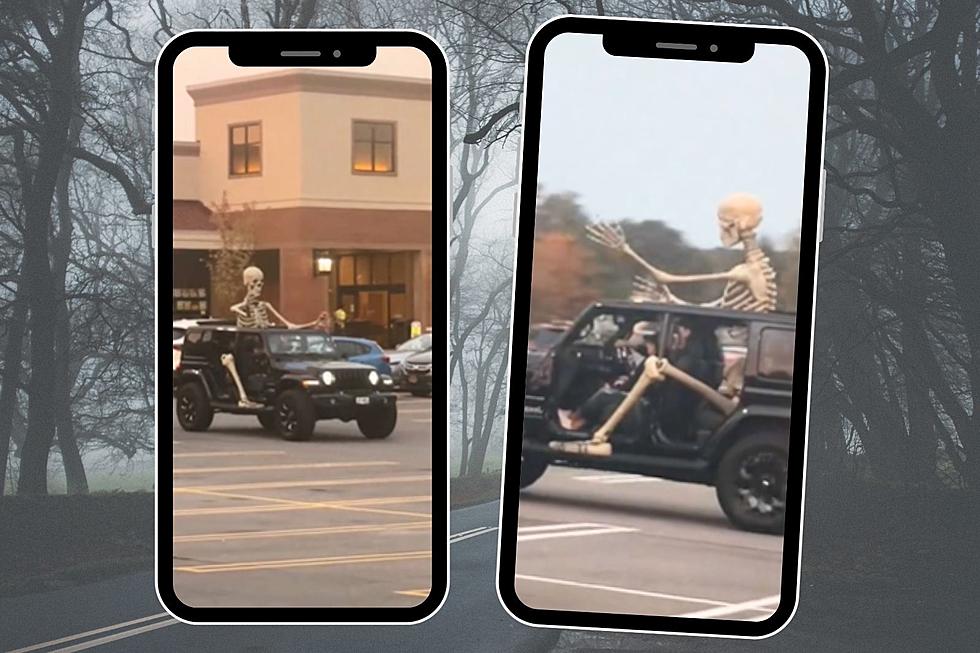![Haunted Windchimes: Rural 1930s Fantasy with a Dark Edge [VIDEO]](http://townsquare.media/site/260/files/2011/05/haunted-windchimes-300x143.jpg?w=980&q=75)
Haunted Windchimes: Rural 1930s Fantasy with a Dark Edge [VIDEO]
When your band is named “Haunted Windchimes,” it's almost impossible to be confused with any other currently touring traditional string act. And for the Pueblo, Colorado group, their sound is likewise distinctive.
The most concise description of the music comes from critic Bruce Sylvester: “The rustic, honeyed harmonies are a delight, recreating the vibe of rural 1930s music with a contemporary consciousness.”
If you're rusty on your high-school history lessons, the 30s was perhaps the most complex and turbulent era in American history—sandwiched between our recovery from the Great Depression and the ominous approach of World War II. But the Windchimes' music is far from being a drag—it's by turns inventive, infectious, and highly danceable.
One reviewer calls them “Among Colorado's most significant musical treasures,” and another adds: “The ghost of classic Blues mingles with a pop sensibility that's given an edge by incredibly touching harmonies.”
The Haunted Windchimes' original songs occasionally have a vibe of the “Down From the Mountain” soundtrack of “O Brother, Where Art Thou?”, a hint of Gillian Welch, or of the sheer raw vocal intensity of the breakthrough duo The Civil Wars. If that sounds like high-falutin' company, it is. But be aware the group is anything but derivative.
Even the most rhythmically upbeat tunes have a dark edge to their lyrics, as in “Find the Door”: “That late night light that you've been burnin' / I ain't warmin' up to any more / Find the door...” That goes double for the eerily hypnotic ballad “Little Bones”: “Little bones / Little bones / Don't fail me...” And when these sensibilities pen a happy-sounding song titled “A Ballad of Human Progress,” you know the irony is thick indeed.
Incredibly, the verve of their vocals matches the originality (with a capital “O”) of their songwriting abilities. The harmony voices sound more like the reeds of an instrument than like individual singers. A newspaper reviewer in their hometown calls their sound “startlingly unique.”
That may be partly because, before the Haunted Windchimes was created, the personnel were hitch-hikers who played on street-corners and in college quads, for donations. As member Inaiah Luhan explains, “Something happened to me on the road, back in 2006. I really got in tune with this different spirit out there, just the idea of not being tied down to anything and experiencing freedom on a different level.”
Inaiah's sister Chela (the two grew up on a Navajo reservation in Arizona where their father was a teacher) says performing at open-mic nights during part of her travels was a priceless experience: “I was playing music just by myself, trying to get rid of the anxiety of performing in front of people." Gradually, she got comfortable playing to strangers: "No one in those places knew me, and I was like, 'Yeah, OK!'"
Their occasional cover versions of Woody Guthrie and Leadbelly fit seamlessly into the song list. Another reviewer has described their music as “perfectly suited to college radio, but also could have existed in a Southern blues joint a hundred years ago.” Two of the members have solo albums coming out before year's end.
The fact that they all share the same house and attend college together works to their advantage musically, Inaiah says: “If you put out good energy, I'm of the belief that you get it back. Through music, we can communicate with a lot of people and we can all be under the same roof enjoying music and it doesn't matter what color we are or what our political stance is. You know, all that goes away.”
--Dale Short, carrolldaleshort.com
Check out music from Haunted Windchimes, and see them live this summer at Beartrap!
More From Geekd Con
![The Haunted Windchimes Perform at Beartrap Summer Festival 2016 [VIDEO]](http://townsquare.media/site/966/files/2016/08/hauntedwindchimes6.jpg?w=980&q=75)
![The Haunted Windchimes Beartrap Summer Festival [PHOTOS]](http://townsquare.media/site/966/files/2016/08/hauntedwindchimes2.jpg?w=980&q=75)

![Haunted Windchimes Haunt Beartrap Summer Festival 2011 [PHOTOS]](http://townsquare.media/site/966/files/2011/08/IMG_2541.jpg?w=980&q=75)

![The Haunted Windchimes Perform in the Beartrap ‘Green Room’ [VIDEO]](http://townsquare.media/site/966/files/2011/08/Haunted-Windchimes1.jpg?w=980&q=75)



